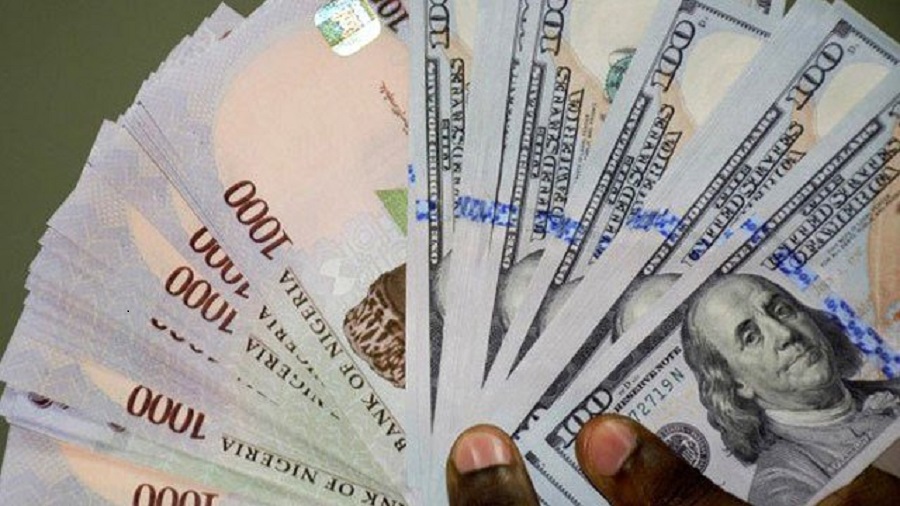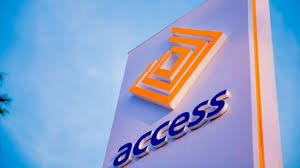Business
Nigeria’s Total Debt Likely to Hit N50tn Soon – Report

The Centre for the Promotion of Private Enterprise has said that Nigeria’s debt, including that of the Asset Management Corporation of Nigeria and borrowings from the Central Bank of Nigeria, can hit N50tn within the shortest possible time.
The Chief Executive Officer, CPPE, Dr. Muda Yusuf, said this during an event to present the 2022 first quarter economic review of CPPE in Lagos on Monday.
Yusuf also advocated concessionary financing for the country, as opposed to commercial debts which are expensive.
He said, “The rising debt profile of government raises serious sustainability concerns. The Debt Management Office had reported that total public debt was N39.56tn as at December 2021. About 11.3 per cent of this debt is owed by the states and FCT.
“However, when we take account of borrowings from the CBN and the stock of AMCON debt, the debt profile would be in excess of N50tn.”
Although government tends to argue that Nigeria does not have a debt problem, the country has a revenue challenge, he said.
He explained that debt would typically become a problem if the revenue base was not strong enough to service it sustainably.
Government’s actual revenue could hardly cover recurrent budget, which implies that the entire capital budget and part of recurrent budget are being funded from borrowing which is not sustainable, he said.
He said, “We cannot continue to increase borrowing on account of the relatively low debt/GDP ratio.
“We do not service debt with GDP, but with revenue. Close to 40 per cent of our GDP do not contribute appreciably to revenue.”
Yusuf said government should have the political will to cut expenditure and undertake reforms that could scale down the size of government, reduce governance cost, and ease the fiscal burden on government and boost revenue.
“It is important to ensure that the debt is used strictly to fund capital projects, especially infrastructure projects, that would strengthen the productive capacity of the economy,” he said.
The former Director General of the Lagos Chamber of Commerce and Industry said it was imperative for the country to operate as a true federation which it claims to be.
He said, “The unitary character of the country is making it difficult to unlock the economic potentials of the subnational. It is perpetuating the culture of dependence on the federal government.
“It is necessary to scale down the size of government and cost of governance. We should note that fiscal sustainability is driven by both cost and revenue. Therefore, managing the major drivers of cost and revenue is imperative.”
The Punch
Business
CBN Retains Interest Rate at 27%

The Monetary Policy Committee of the Central Bank of Nigeria has maintained the benchmark interest rate at 27 per cent, extending its pause on monetary tightening.
The CBN Governor, Olayemi Cardoso, announced the decision on Tuesday at the end of the committee’s 303rd meeting in Abuja.
Cardoso said, “The Committee decided by a majority vote to maintain the monetary policy stance,” indicating that members were not yet convinced that current economic conditions warranted another reduction.
The move follows the 50-basis-point cut implemented in September 2025, the only rate reduction since the tightening cycle began under the current CBN leadership.
It also marks the fourth consecutive hold this year.
The MPC had raised rates six times in 2024 amid surging inflation and currency pressures.
The Punch
Business
Access Bank Launches “DettyFusion” Platform for Seamless Detty December Experience

Access Bank Plc, Nigeria’s largest retail bank, is set to unveil DettyFusion, an innovative all-in-one digital platform designed to help Nigerians at home and in the diaspora seamlessly discover, plan, and enjoy entertainment events during the upcoming Christmas and New Year festive season.
Billed as the first-of-its-kind entertainment aggregator in the country, DettyFusion will serve as a centralized hub where users can explore event calendars, purchase tickets, access exclusive discounts, participate in curated festive experiences, and make safe, seamless payments throughout the holiday period.
Speaking on the forthcoming launch, Access Bank’s Head of Mobility, Ishmael Nwokocha, said the platform was inspired by the bank’s commitment to enhancing customer experience during the highly anticipated Detty December season.
“Every December, Nigerians look forward to moments that bring joy, connection, and unforgettable experiences. The launch of DettyFusion will create a single gateway that makes it easier, safer, and more convenient for customers to enjoy the thrills of Detty December,” Nwokocha stated.
He added that the platform reflects Access Bank’s drive to deliver innovative lifestyle solutions that extend beyond traditional banking services. “DettyFusion brings together key features that meet the needs of today’s digitally active and experience-driven audience,” he said.
With this initiative, Access Bank continues to reinforce its position as a leading lifestyle enabler, supporting Nigeria’s creative sector while empowering customers to enjoy top-tier entertainment during the festive season.
With DettyFusion, Detty December just got smarter, more convenient, and even more rewarding.
Business
How Access Bank is Supporting Women Driving Africa’s Growth Story

Across Africa, women are fast becoming the heartbeat of economic transformation. From bustling open-air markets to high-tech boardrooms, women-led enterprises are redefining what is possible for the continent’s future.
Whether as market traders expanding their reach through digital platforms, tech founders scaling innovations across borders, or artisans turning local crafts into global brands, women’s contributions are now central to Africa’s economic resurgence.
Even as they break new ground, many still face formidable barriers. Access to finance, mentorship, business education, and supportive networks remains limited. Structural issues such as weak property rights, gender bias, and inadequate legal protections often hinder women from securing loans or expanding their businesses.
Consequently, many women-owned ventures remain small, informal, and vulnerable to economic shocks.
Recognising both the promise and the obstacles, Access Bank has positioned itself at the forefront of empowering women across the continent. Recently named Africa’s Best Financier for Female Entrepreneurs by the EMEA Finance Awards, the Bank has earned global recognition for its commitment to inclusion, innovation, and sustainable impact.
At the centre of this effort is the W Initiative, one of Africa’s most comprehensive women-focused banking programmes. Unlike conventional banking, it combines finance with mentorship, training, and community support, acknowledging that true empowerment requires more than access to capital. The initiative meets women wherever they are on their entrepreneurial journey, from start-ups to growing enterprises and corporate leadership.
The W Power Loan offers affordable credit with flexible terms, enabling women to invest in expansion, inventory, or technology. The W Academy provides leadership and business training on financial literacy, marketing, and regulatory compliance, while the W Community connects women to peers, mentors, and role models across industries.
Importantly, these offerings extend beyond urban centres. From microloans sustaining traders in rural markets to leadership programmes developing female executives in multinational firms, Access Bank’s approach is deliberately inclusive. By partnering NGOs, business associations, and government agencies, it reaches women in underserved communities, ensuring participation in Africa’s economic rise.
The results are evident. Thousands of women have accessed credit, training, and networks through the Bank’s initiatives, enabling them to launch and scale businesses, create jobs, and uplift their communities. The ripple effects are far-reaching: increased household income, improved family wellbeing, and greater economic resilience. Women who once faced daunting barriers now serve as role models and change-makers, inspiring others to follow their path.
Studies show that when women thrive, societies prosper. The World Bank and African Development Bank note that empowering women fuels GDP growth, improves health outcomes, and enhances social stability. By directly addressing structural gaps in access to finance and information, Access Bank helps to unlock this transformative potential.
Apart from supporting entrepreneurs, Access Bank promotes gender inclusion within its own organisation. Its leadership pipeline identifies and advances talented women, while mentorship and wellness programmes help female professionals thrive. The Bank also uses public platforms, from conferences to policy dialogues, to share success stories and advocate for gender diversity across sectors.
The EMEA Finance recognition thus goes beyond trophies and titles; it affirms that profitability and purpose can coexist. For Access Bank, supporting women’s advancement is smart economics. By embedding inclusion into its DNA, the Bank is shaping a financial ecosystem that views women as equal partners in progress.
Access Bank’s influence also extends into advocacy. Through forums, roundtables, and research collaborations, the Bank engages policymakers, civil society, and business leaders to identify and dismantle barriers facing women entrepreneurs. Its campaigns amplify women’s voices, spotlighting their achievements and driving conversations around inclusive growth.






